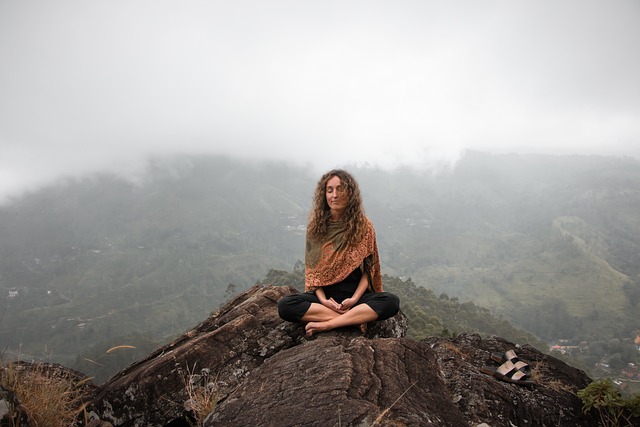The subject of spirituality has long been controversial among atheists. Some argue that no self-respecting atheist should talk about it. They insist that it implies supernatural entities. Do they forget that not all atheists are metaphysical naturalists? Some atheists believe in ghosts, after all.
Other atheists are determined to convince us that spirituality is good for everyone and that atheists should embrace secular forms of spirituality. They may forget that their own needs or desires for what they call spirituality are not universal and that some atheists find little use for spirituality of any form.
Who's right? Is there such a thing as secular spirituality? Is it meaningful to talk about spirituality without gods? Can someone be a spiritual person without believing in spirits?
Losing Faith in Faith
I watched one of the many YouTube videos available of Dan Barker's "Losing Faith in Faith" tour back in 2014. I don't recall which one it was, but I'd guess that they are similar enough that it doesn't matter. Barker reminded us that many atheists are not former evangelical Christians like him. He said they may struggle to understand the spiritual experiences evangelicals have. He drew a contrast between himself and Richard Dawkins, Christopher Hitchens, and Daniel Dennett in this respect.
Barker explained that he's shared the most intense spiritual experiences evangelical Christians describe. This lets him understand evangelicals in a different way than the rest of us. He's right. Like many atheists who were never been evangelicals, my understanding has limits. I haven't had spiritual experiences I associated with supernatural entities.
I've had secular experiences some might associate with spirituality, but that's different. I've never felt the presence of gods. I've never been filled with "holy" spirits of any sort. I've never had the experience of feeling like my prayers received any sort of response. My attempts to understand evangelical Christians have all been from the outside.
Spirituality Without Gods
How similar are my experiences of secular spirituality to what religious believers describe? That's hard to say. I have experienced feelings of awe, transcendence, and oneness with all living creatures. Some of what I've experienced sounds a lot like what I've heard from religious believers. If our experiences were somewhat similar, could this promote understanding? If the main difference involves how we have interpreted our experiences, does that give us enough common ground?
Evangelical Christianity has always seemed foreign to me. Of all the things I could have in common with them, it is strange to think that spirituality could be one. Of course, spirituality is not limited to evangelical Christianity. Could it be a thread that connects us all, regardless of whether we believe in gods?
In our divided world, I find this to be an intriguing possibility. I'm skeptical about it but fascinated at the same time. What would it take to move forward? Religious believers would have to recognize the validity of secular spirituality. Atheists would have to be willing to look past religious language and seek common ground.
Do Atheists Need Spirituality?
Should atheists promote or oppose secular spirituality? Does either option make sense? Questions of spirituality strike me as too personal. Each of us has to figure out for ourselves whether spirituality of any sort should be part of our lives. It could be worthwhile to one and irrelevant to another. I see no need to promote or oppose it.
There have been periods in my life where secular spirituality was important to me. I thought about it often during these times. I sought opportunities to deepen it. It never occurred to me to push it on others. Their views on spirituality weren't any of my business.
These periods seem quite remote. I have not been in one for over a decade. Spirituality doesn't seem as relevant in my daily life as it once did. I have no interest in discouraging others from seeking secular spirituality. In fact, I find myself wondering if I should make an effort to rediscover some of it.
Where You Might Go Next
Is spirituality important to you? Are you unsure but curious about it? If so, then go for it. Don't let others deter you from your quest. Explore, examine, and seek. Cultivate spiritual experiences and tune out the objections you may hear.
At the same time, recognize that many won't share your interests in spirituality. Don't waste your efforts trying to convince them they should share your interests. They don't need to share your interests.
If spirituality is not relevant in your daily life, that's fine too. Steer clear of it while remembering that many others do value it. Resist the temptations to rain on their parade. It is okay that others aren't like you in every way. Our quests and their outcomes will vary. You get to decide what is right for you, and so do they.
If you are interested in the subject of secular spirituality, you may be interested in Sam Harris' book, Waking Up: A Guide to Spirituality Without Religion. I still haven't gotten around to reading it, but I hope to do so one of these days.
Image by vined mind from Pixabay
An early version of this post appeared on Atheist Revolution in 2014. It was revised and expanded in 2023.
This post contains Amazon.com affiliate links, and I receive small commissions for purchases made through these links. This is one of the ways readers can support Atheist Revolution.
